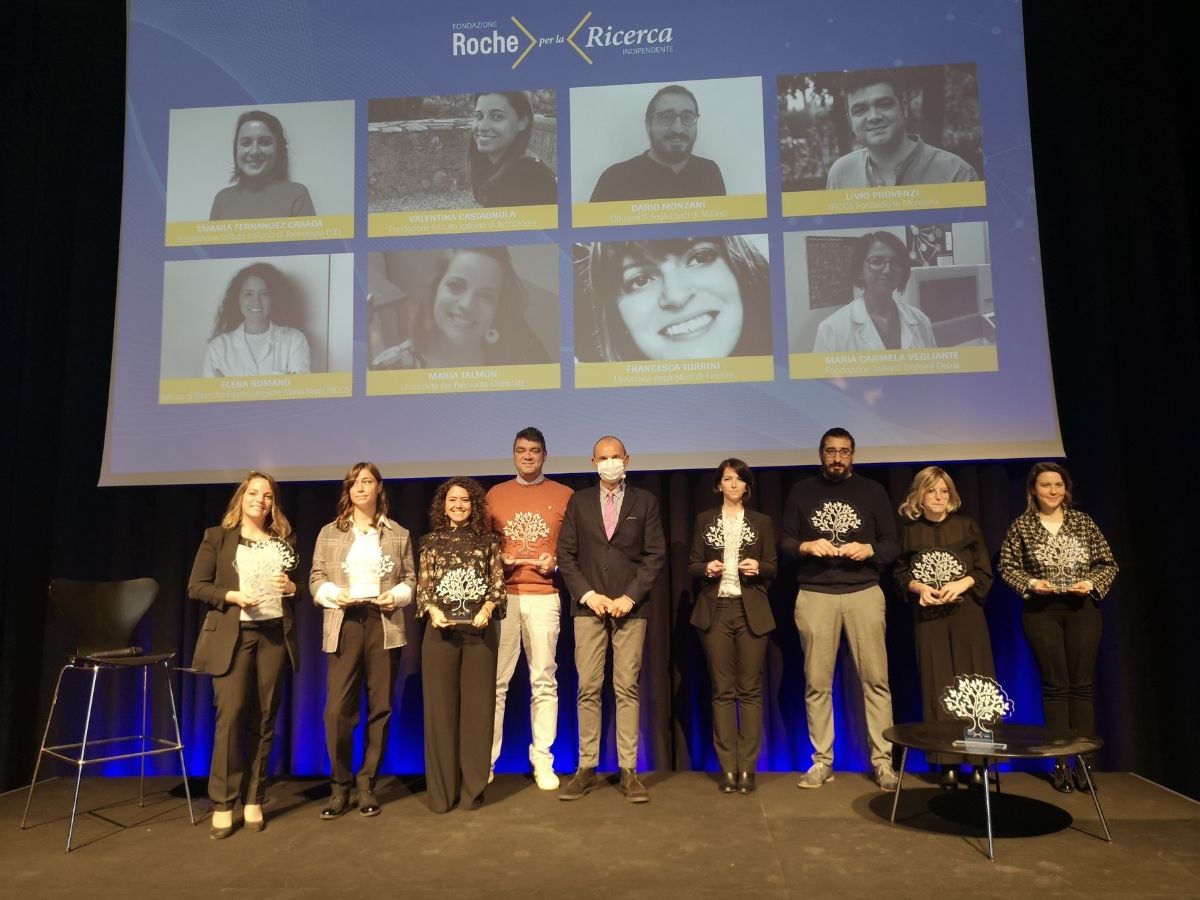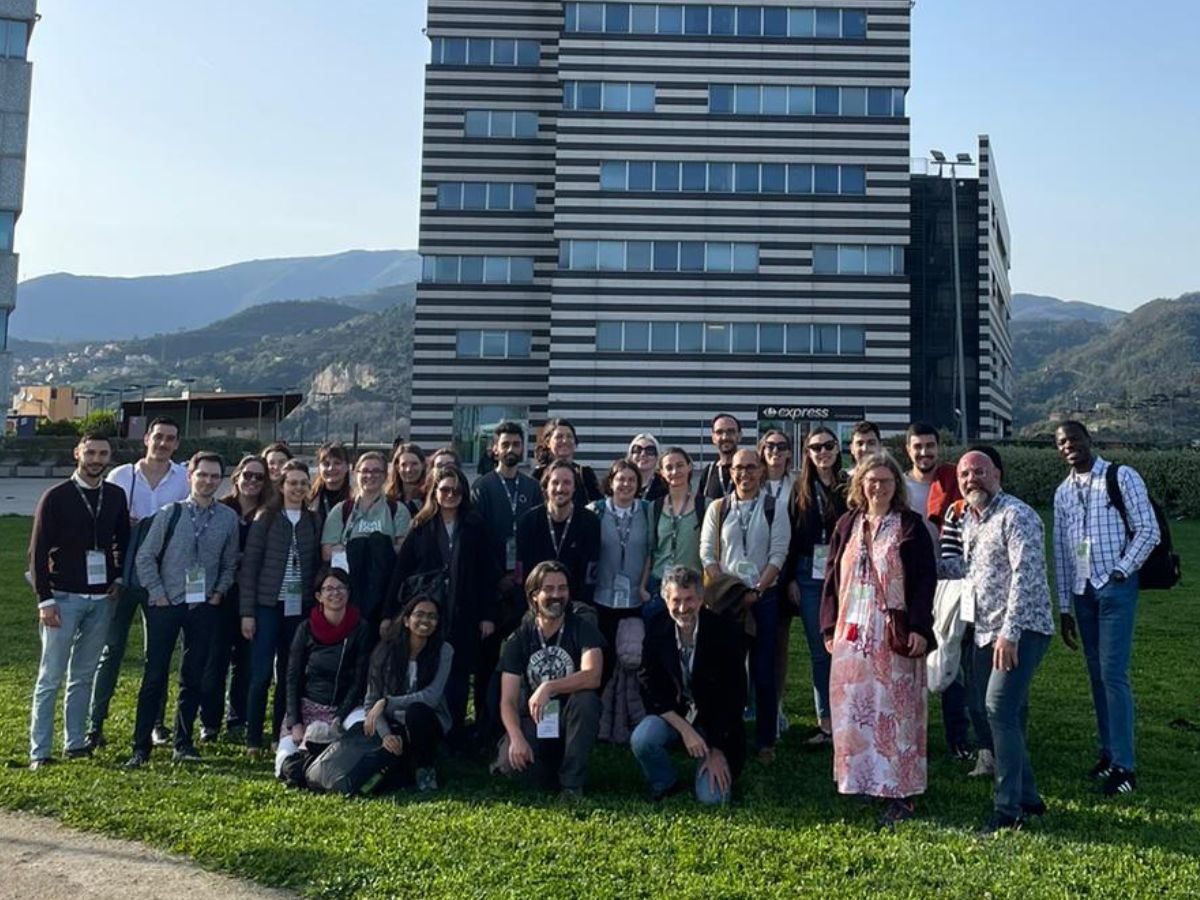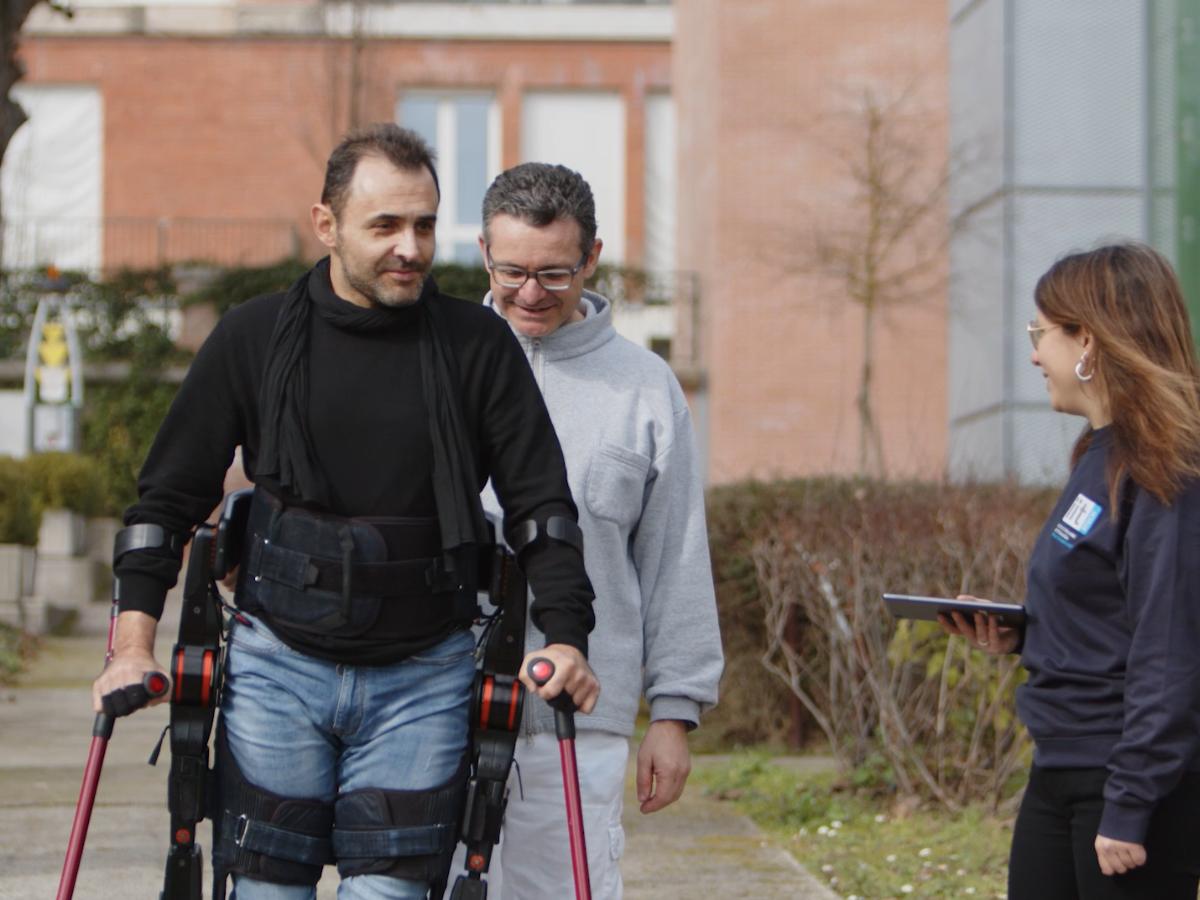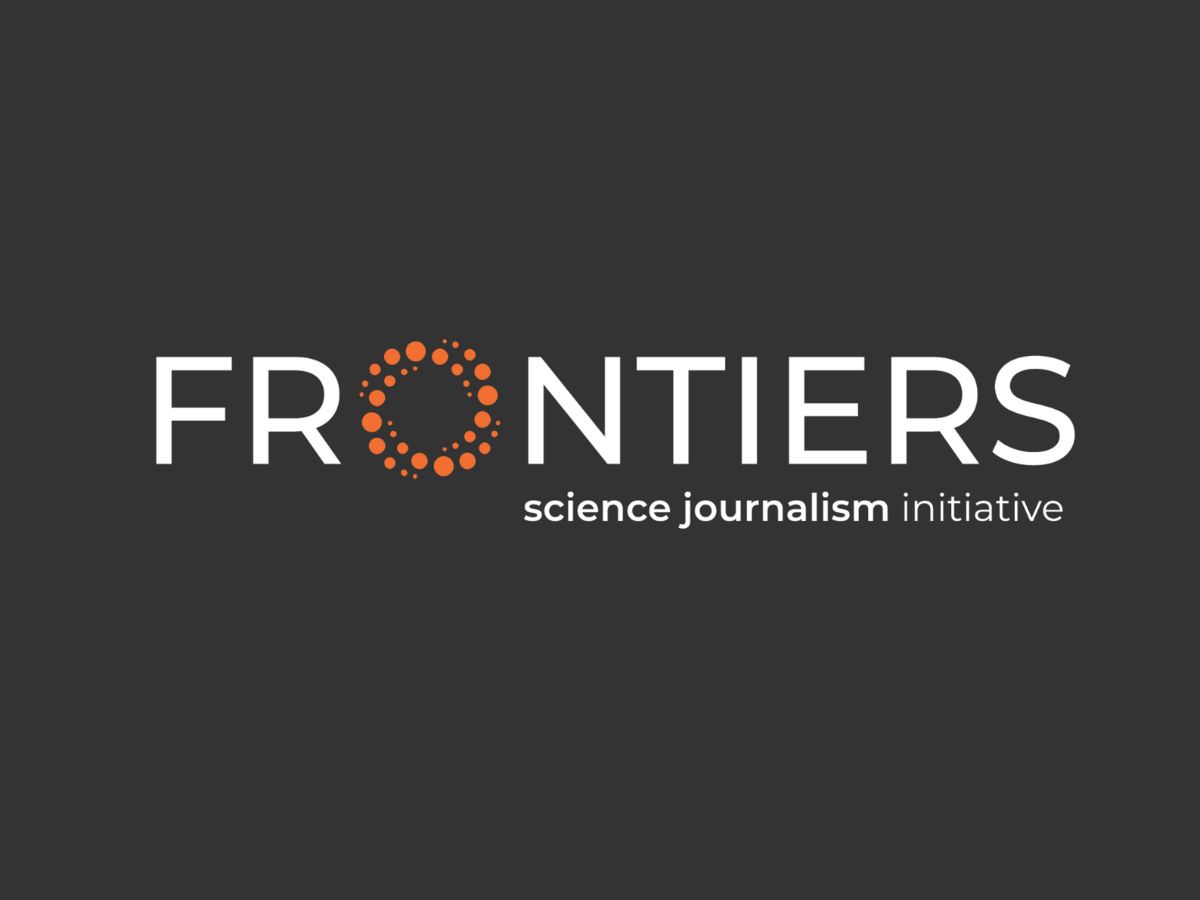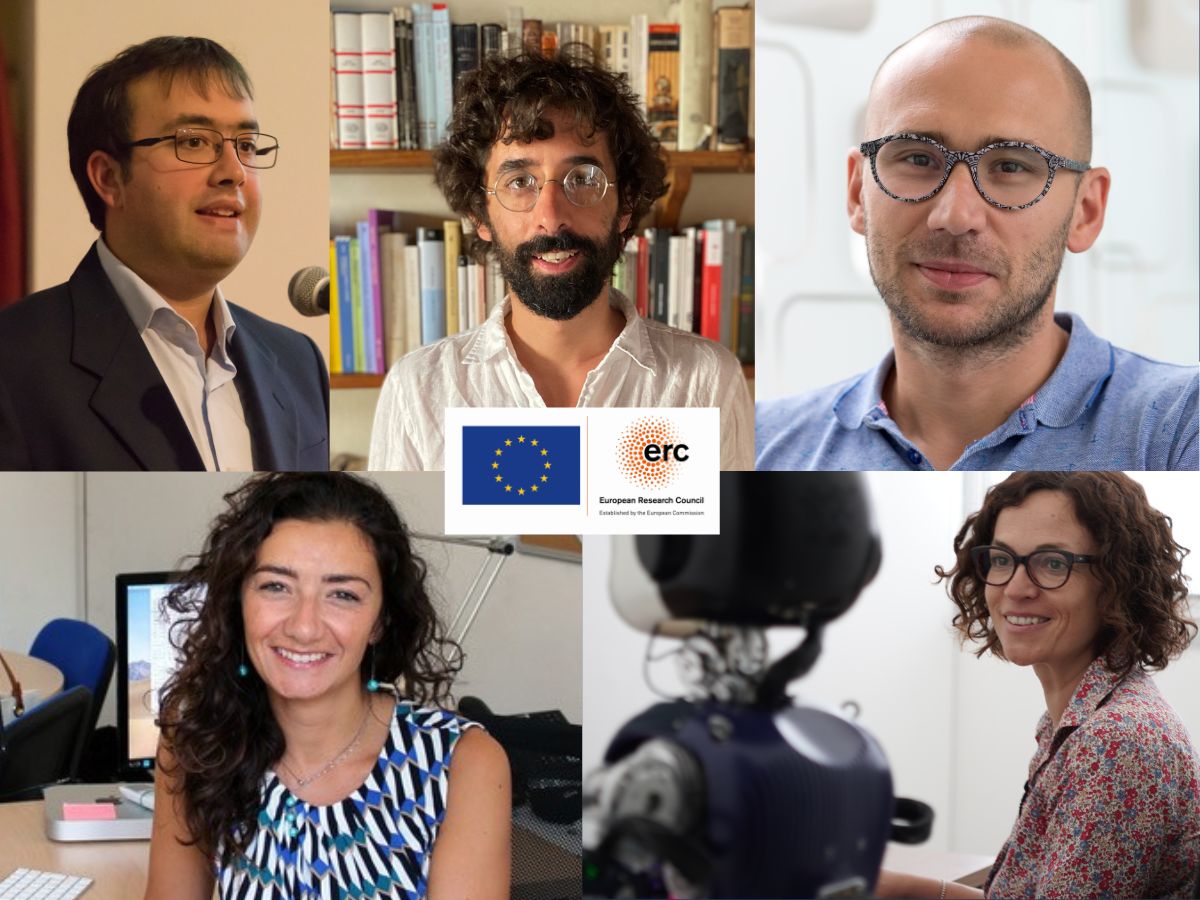Tamara Fernandez Cabada and Valentina Castagnola win funding for their research projects in Oncology and Neuroscience.
Two young IIT researchers have won the ‘Roche Foundation for Independent Research’ call for applications for scientists under 40: Tamara Fernandez Cabada, a biologist who will be working on the development of innovative oncological therapies, and more specifically on human glioblastoma, using nanoparticles, and Valentina Castagnola, a neuroscientist, who will be looking at the issue of neurodegenerative diseases and designing new nanorobots capable of intervening on brain tissue with high precision. The researchers will each receive €50,000 to perform their studies over the next 12 months. The funding was officially assigned during an Award Ceremony that the Roche Foundation organised on 10 November 2021 at the Giangiacomo Feltrinelli Foundation in Milan, in the presence of Mariapia Garavaglia, President of the Roche Foundation.“Today, more than ever before, we need science for the country’s recovery, but also to carry on looking for solutions that can improve the lives of patients in all therapeutic areas”, said Garavaglia. “We therefore have to invest in young researchers, creating training courses to nurture talent in our country and to contribute to economic development”.The IIT researchers’ projects, together with six other winning projects, were selected and assessed by experts from Springer Nature; Richard Hughes, Vice President of the Publishing Group, Nature Research Partnerships Springer Nature, underlined how ‘fierce’ the competition can be for funding amongst researchers at the start of their careers. Now in its sixth year, the Roche Call for Applications has allocated more than €3 million, funding a total of 48 projects.“As an emergent researcher, this award is first and foremost an opportunity to continue doing what has fired me since childhood: performing research to find answers to the questions around us and to address and solve the challenges that affect human health”, commented Tamara Fernandez Cabada, a researcher in Teresa Pellegrino’s group at IIT in Genoa. “This award is also a personal challenge, an exceptional opportunity to learn how to conduct independent research and boost my scientific career”.Cabada will study the possibility of using a combination therapy to treat human glioblastoma, in particular by eliminating the cancer stem cells responsible for the glioblastoma’s recurrence and its aggressive nature. To achieve this, the proposal is to combine magnetic hyperthermia with cell differentiation techniques, alternative therapies that would avoid side effects by increasing cancer stem cells’ sensitivity to temperature increases and facilitating their elimination.“Neurodegenerative diseases affect an ever-increasing number of the world’s population and represent one of the most harrowing problems of our time, with very serious social, economic and emotional consequences for patients and their families”, commented Valentina Castagnola, a researcher in Fabio Benfenati’s group at the Centre for Synaptic Neuroscience and Technology at IIT in Genoa. “Unfortunately, as we know, there are still no definitive treatments that can halt or reverse the progression of these diseases. So I think that there is an urgent need to propose innovative and ambitious therapeutic approaches, as I have tried to do with this project. My hope is to be able to create solid foundations for the technological development of this broad-spectrum therapeutic approach”.The new therapy will be based on the use of nanorobots, in other words, like tiny spacecraft capable of crossing the shield represented by the blood-brain barrier and reaching specific target neurons. These spacecraft will be loaded with functional nanoparticles capable of converting a remote light signal into an electrical pulse. The combination of these two components (nanorobots and nanoparticles) will create hybrid (biological and synthetic) systems that can reach a denervated neuron and integrate its loss of function by stimulating it with remote light impulses. The ability to modulate neuronal activity non-invasively by means of wireless stimulation with high temporal/spatial resolution and the capability of targeting specific areas of the brain will represent a technological advance applicable to a wide range of neurodegenerative diseases.The Roche Foundation has confirmed its commitment for next year as well, launching the new edition of the Call for Applications which will involve funding for a total of €400,000, for eight research projects in the following areas: oncology, haematological oncology, ophthalmology, neuroscience, hereditary coagulation diseases, SARS-COV2, digital health and personalised medicine (PHC).

